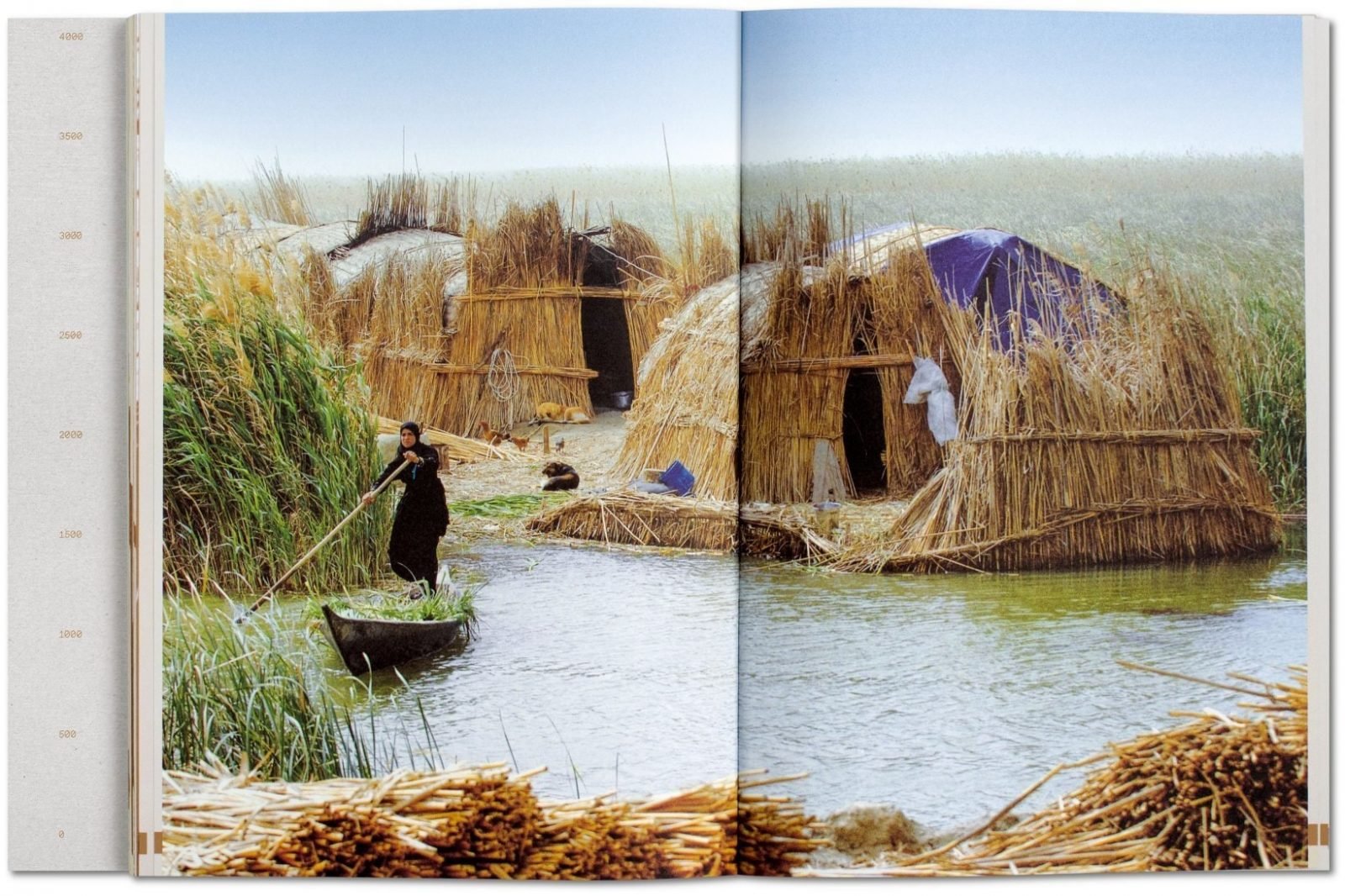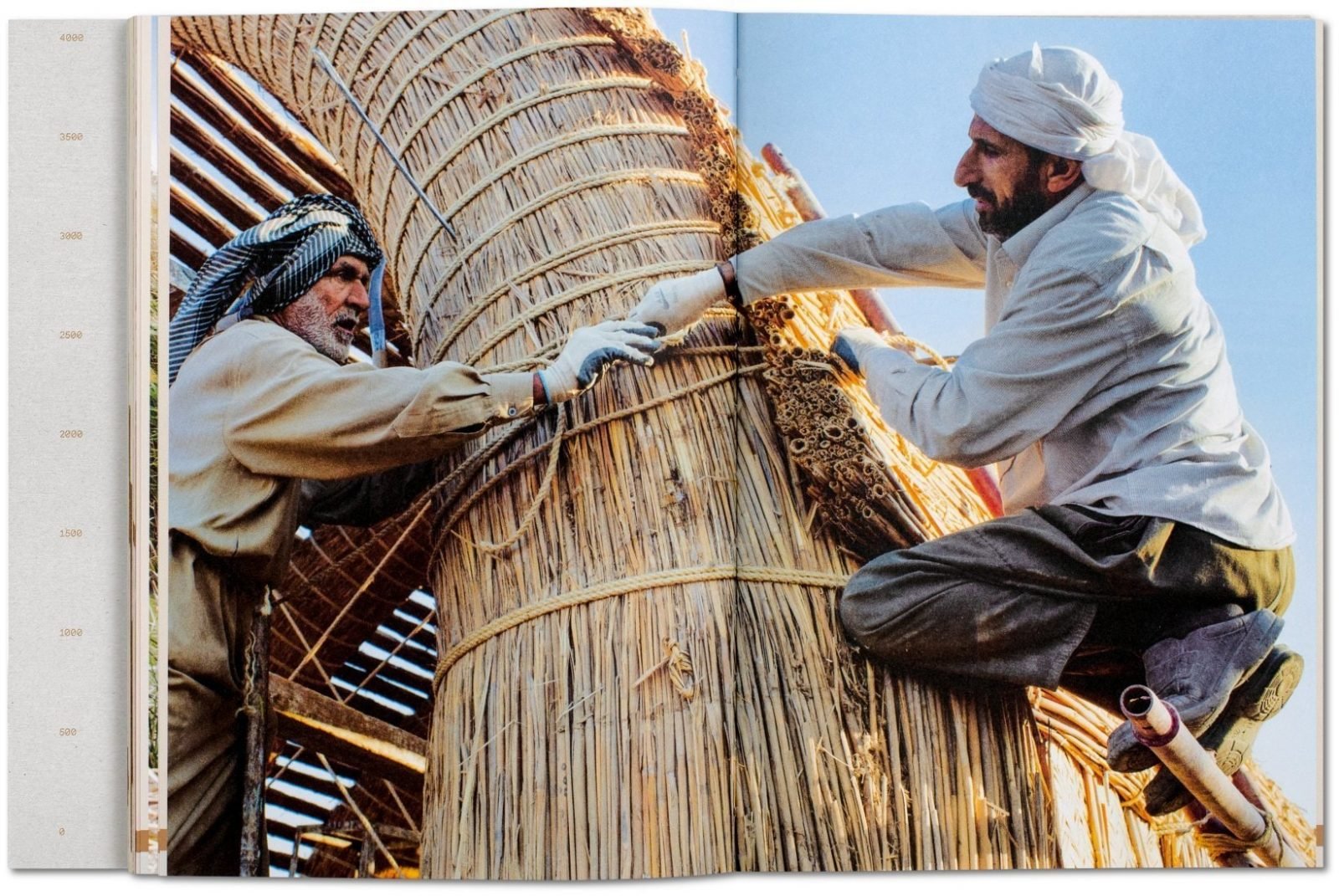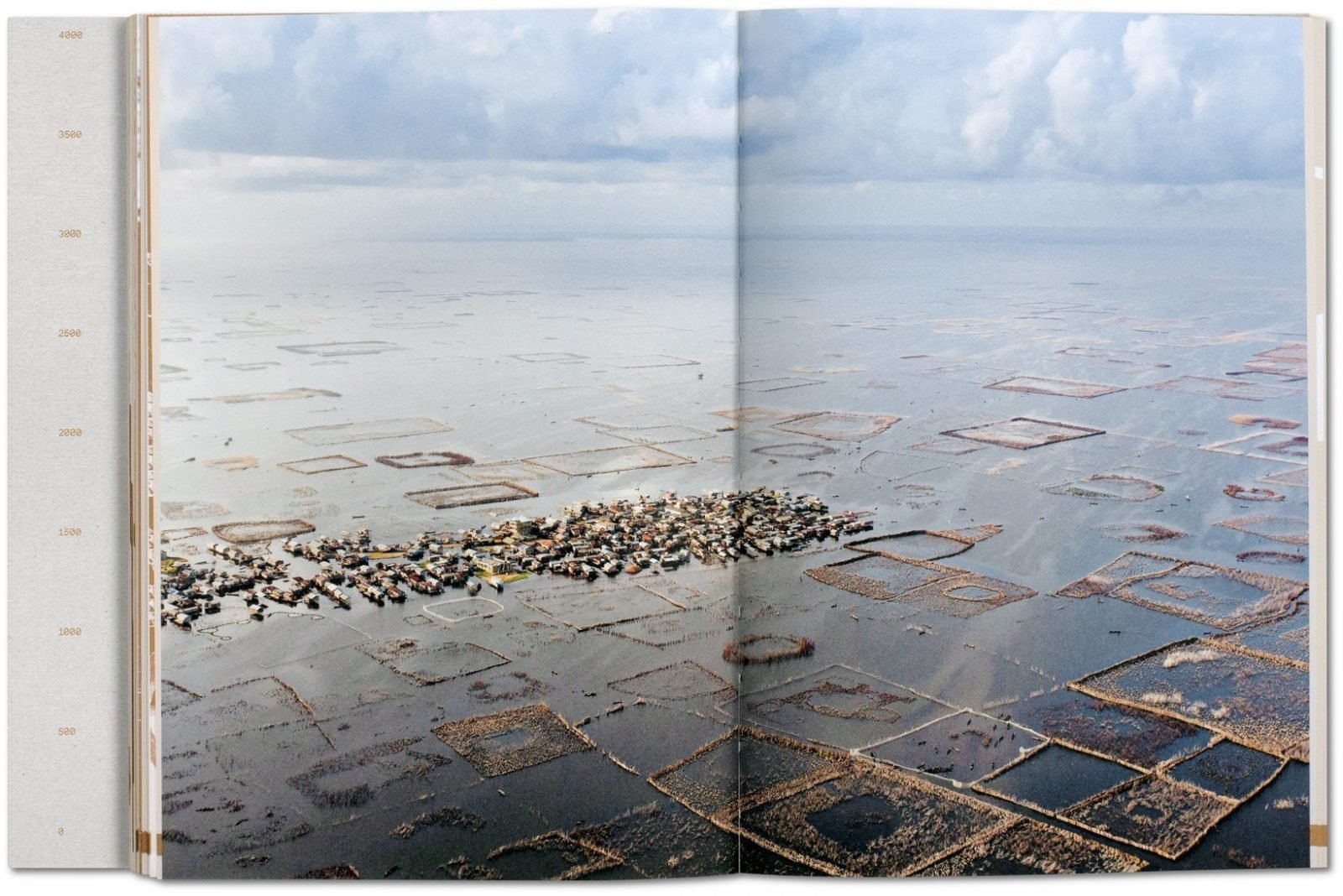Lo—TEK: What Cities Can Learn From Indigenous Innovation

Julia Watson travelled all over the world to observe indigenous communities for her book Lo—TEK: Design by Radical Indigenism that shows inspiring, age-old design and system solutions created by communities to coexist with nature. Solutions that have long been ignored, but are now more relevant than ever for modern society's challenges.
“This book is dedicated to the next seven generations.” With this opening sentence, Lo—TEK addresses the gap between the fast-paced modern civilisation and indigenous communities. Lo—TEK is different from low-tech. TEK stands for Traditional Ecological Knowledge and argues that this knowledge is essential for a resilient future of our planet. The developed systems within these communities are created to last for at least seven generations. A concept that might be difficult to imagine in western society, but in the light of our current global challenges, a change of view we may have to consider.

The interest in these indigenous systems has been a life-long fascination for Julia Watson. Her life crossed with Aboriginal people when she grew up in Australia. Then, travelling the world she was always fascinated by the indigenous inhabitants and their innovative solutions. As an urbanite and architect based in London, she sees that our current system needs to change to be sustainable. Lo—TEK is an effort to let people see that there are alternatives, that there are other lines of thoughts we can invest in. The author underlines the importance of indigenous knowledge that is built upon from generation to generation:
“In an era of both utopian high tech and unprecedented climate extremes, we are drowning in information, while starving for wisdom”
Julia Watson, author of Lo—TEK
All the examples show great sensitivity for context, ecology and spiritualism and are captured in four main themes: Mountains, Forests, Deserts and Wetlands — environments that are under threat of industrialisation and climate change.
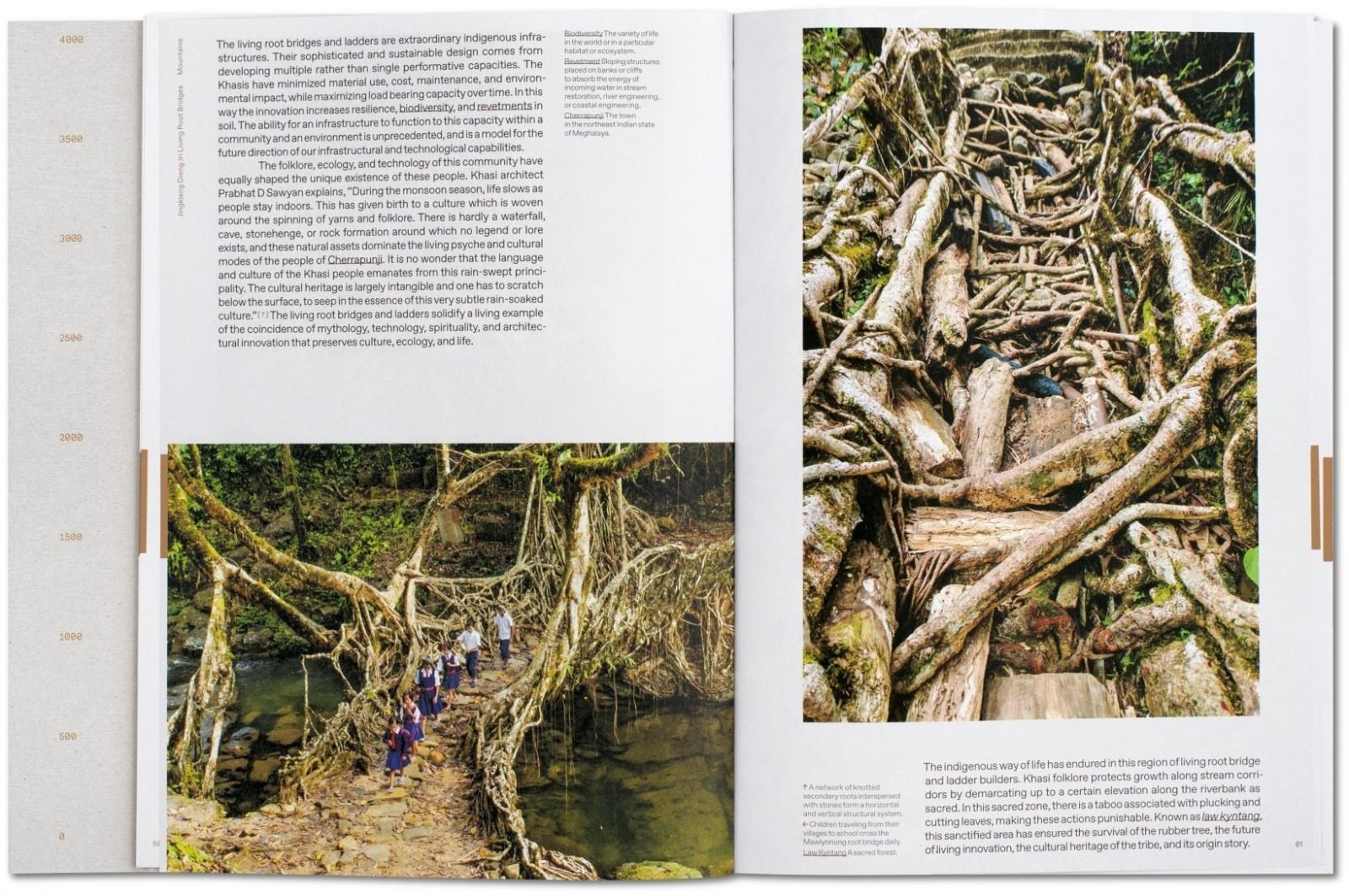
The living root bridges built by the Khasis are a beautiful example of how patience and innovation lead to resilient design. The tribe lives in the wet hills near Bangladesh and are confronted with extreme weather in the monsoon season affecting the accessibility of the villages. But the living bridges make it possible to still travel and trade during the floodwaters of the monsoon. Constructed by guiding growing roots across tree trunks, this technique results is a whole infrastructure of bridges and ladders throughout the Jaintia Hills region. These bridges last for decades and, in addition, are beautifully to look at.
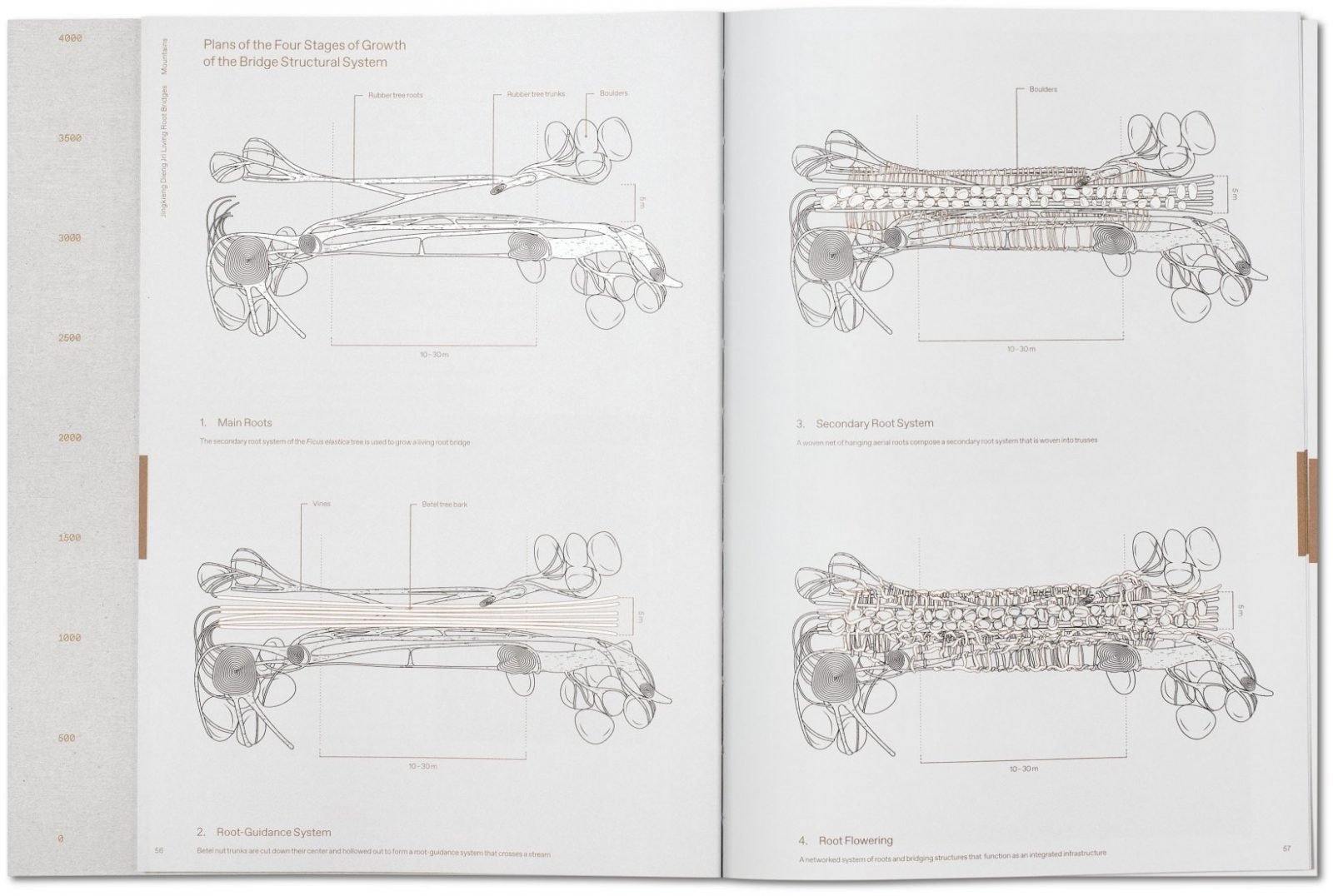
Most of the communities are adapting to natural circumstances, giving them the ability to adapt to future threats. Take the Ma’dan, living in the wetlands of Iraq, they have made floating islands from reed that form entire villages. The reed is harvested from the land surrounding it and is essential for building every part of life in the community: dwellings, community centres, barns and fences. The island construction follows the rhythm of the seasons and is done in coherence with wildlife. As many examples in the book, the ecosystem of the Ma’dan has been under threat because of political and economical interests.
It would be easy to critique Lo—TEK on the fact that it doesn’t provide solutions for urban planning, but this book serves as an inspiration for reframing our approach to designing the built environment in a resilient way. Lo—TEK not only tell stories on how ancient communities live in symbiosis with their ecosystem, but it also invites designers and city-makers to think along the same lines. Modern civilisation has distanced itself from nature by creating controlled environments, which we call cities and exactly those environments are under threat of future climate disasters. Lo—TEK offers a new perspective on a systematic approach that is very much needed.
Lo—TEK. Design by Radical Indigenism
Author: Julia Watson
Publisher: Taschen
Format: 17 × 24.4 cm
Features: Swiss binding, hardcover, 420 pages
Language: English
ISBN: 978-3-8365-7818-9
